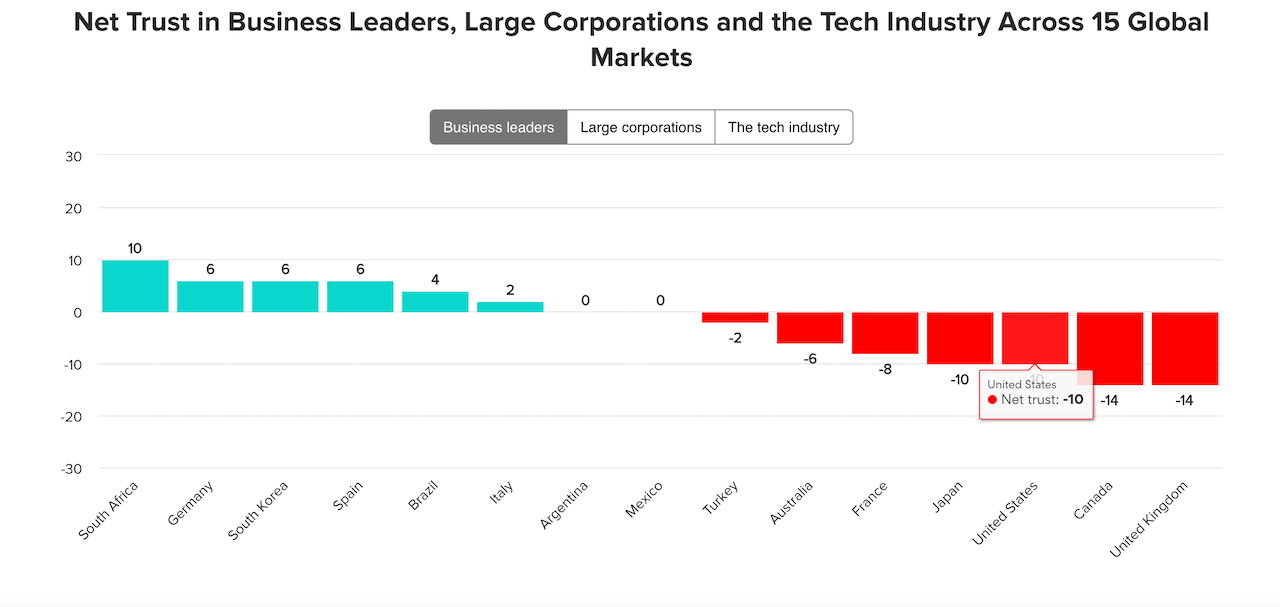Leadership
Homebuyers' Needs, Present And Future, Form A Basis For ESG Aims
Timeless value ... it's the one promise a homebuyer choosing now as the right time to spring for a new home can trust in his, her, their builder.

An agenda to run a state, one state's governor makes it clear, means crossing over from the turf of policymaking into the terrain of business and investment strategy.
An agenda to run a homebuilding or residential development company – anyone who has spent an evening at a local city planning commission meeting knows only too well – means bridging business goals with political ones at a granular level.
An agenda to run a household, or for that matter, a career or livelihood, deals constantly – often as the bearer, proportionately or disproportionately as is the case, of the most skin in the game in both domains – with those crossovers.
So what are governors, business leaders, and household decision-makers to make of this?
Corporate power has increasingly been utilized to impose an ideological agenda on the American people through the perversion of financial investment priorities under the euphemistic banners of environmental, social and corporate governance and diversity, inclusion and equity,” [Florida Governor Ron] DeSantis, a Republican, said in a statement." – New York Times
Does a statement like this point to policymakers, business leaders, and household decision-makers as dwelling in parallel universes? Or do sovereign states, business, and households occupy a single reality that shares interests and common-denominator values?
At a moment homebuilders are all battling big daily challenges getting homes built, sold, and settled, these question may strike many as safely abstract and inconsequential.
That is, until you think through the following:
If one of the moment's crucial challenges for homebuilders is to get homebuyers to agree that now's the precise time to make the most materially important value creation financial move of a lifetime – to buy a newly built home – trust would figure in as a non-negotiable.
Here's a telling piece of data we believe can serve as connective tissue binding these separate agendas, under the heading "Measuring Trust in Business and Consumer Demand."

Here are three accompanying data points, corollary to a macro observation:
... "a world where trust in institutions has been on the retreat and ethical consumerism on the rise, people increasingly look to companies to take action on important geopolitical issues like addressing climate change and cybersecurity, human rights, and forced labor:"
- Majorities of adults in all 17 countries say they prefer to buy from brands that reflect their social values. U.S. adults were the least enthusiastic at 58%, compared with 61%, 66% and 69% of adults in the United Kingdom, Germany and China, respectively.
- Millennials’ opinions of brands’ global behavior fluctuate the most compared with other generations. Between May and July, the share of millennials who said they think companies are becoming more globally aware dropped 6 percentage points. On average, millennials and Gen Z adults became less convinced that the brands they buy from behave ethically overseas.
- U.S. consumers want CEOs to speak out on global issues. They are particularly avid about corporate leaders taking action on issues that are central to business operations, like cyberthreats and labor practices.
Now, the Morning Consult consumer intelligence data may serve as a channel to better value-creation for a homebuilder in a free-market or not. That's for business leaders and for free-markets to decide.
When it comes to pensions, managers play a long game, and ignoring E.S.G. could be risky."
Remember it was not that long ago builders debated on one either-or side or the other about whether homebuyers would prefer to pay for energy-efficient building envelopes and systems or, instead, get their granite countertops and garage door openers.
The value buyers expect in a new home – although some aspects of it are eternal – is always evolving, and never a one-way street. Buyers, we learn, expect homebuilders to serve as a solution to making them better customers, ones that live up to their principles.
The very early innings of E.S.G. are in no way a silver bullet business strategy. It will take both what they stand for and the organizations they're intended to impact many more iterations before they lock into a business operational and profit model fit for the present and a timeless future, come what may.
It's ironic, in ways, that an attack on "euphemistic banners" should direct state pension administrators to prioritize "the highest return on investment for beneficiaries, without consideration for nonpecuniary beliefs or political factors."
Does that mean fiscal quarter-to-quarter, or across a 12-month, or three-year, or how-about the seven to 10 years people who buy a new home will occupy that residence?
In that longer view timeframe of 36 months or a decade, or a generation, which of the E.S.G. pillars is, in fact, "nonpecuniary?"
Nevermind the politics.
Consider, instead, the agenda of people in households and people making livelihoods that are the timeless lifestream of business and profitability.
The new homes you're trying to convince your customers to trust it's the right time to buy now, if nothing else, hinge on what author William MacAskill writes about in his "The Case for Longtermerism:"
Future people, after all, are people. They will exist. They will have hopes and joys and pains and regrets, just like the rest of us. They just don’t exist yet.
But society tends to neglect the future in favor of the present. Future people are utterly disenfranchised. They can’t vote or lobby or run for public office, so politicians have scant incentive to think about them. They can’t tweet, or write articles, or march in the streets. They are the true silent majority. And though we can’t give political power to future people, we can at least give them fair consideration.
Lots of people homebuilders want to trust them rely on the builders "to do the right thing" for buyer prospects themselves and "future people."
Join the conversation
MORE IN Leadership
10 Bold Ideas Tackling Housing Affordability And Access Now
From AI to hempcrete, these 10 ideas show how innovation in design, finance, and policy can open the door to housing affordability.
Sumitomo Forestry Sharpens U.S. Focus With DRB Move
Strategic clarity replaces portfolio sprawl as Sumitomo bets big on U.S. scale and integration.
Homebuilders and Insurance: A New-Reality Cost To Stay Ahead
Exclusive insights from Westwood Insurance Agency’s Alan Umaly and MSI’s Naimish Patel reveal why homebuilders must rethink insurance, resilience, and risk management—or risk losing buyers in an increasingly volatile market.
